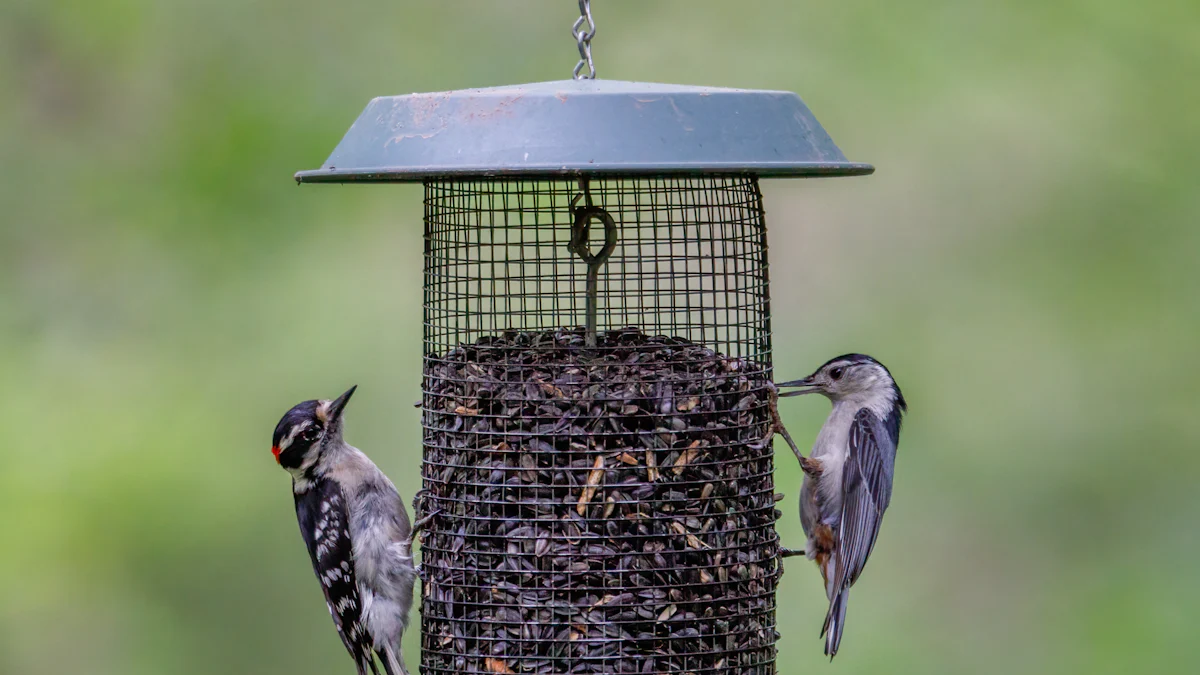
Feeding mealworm for garden birds can transform your backyard into a lively haven. These tiny treats pack a punch with their high nutritional value, making them a favorite among feathered visitors. You’ll notice more bird species flocking to your garden, drawn by the irresistible mealworm for garden birds. They’re easy to provide and available year-round, ensuring your birds stay healthy no matter the season. By offering mealworm for garden birds, you give them the energy they need to thrive and brighten your outdoor space with their presence.
Key Takeaways
- Mealworms are a high-protein food source that supports birds’ energy needs for activities like flying and nesting.
- These nutritious treats are rich in essential nutrients, including fats, fiber, and calcium, promoting overall bird health.
- Mealworms are available year-round, making them a reliable food option for garden birds in all seasons.
- Soaking mealworms before feeding can improve hydration and make them easier for birds to consume, especially for young or smaller species.
- To attract more birds, place mealworms in a safe, visible location and consider using a specialized feeder.
- Combine mealworms with other food sources like seeds and fruits to create a balanced diet for your garden birds.
- Regularly clean the feeding area to maintain hygiene and encourage healthy visits from your feathered friends.
Nutritional Benefits of Mealworm For Garden Bird
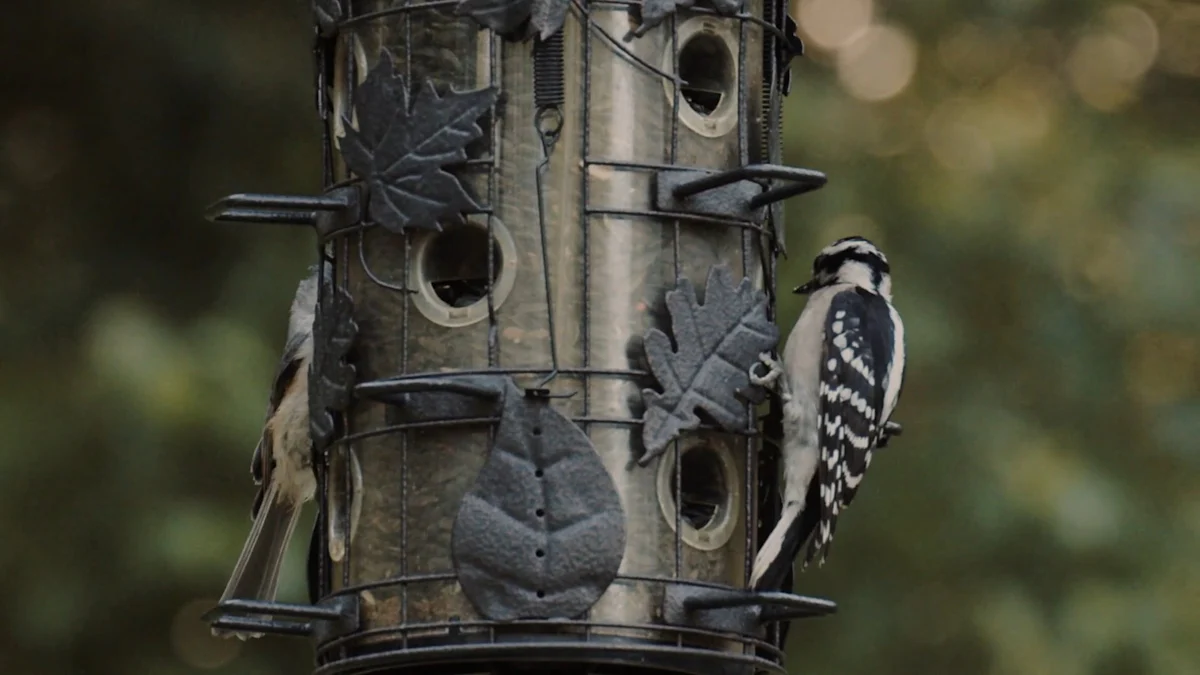
High Protein Content
Protein plays a vital role in a bird’s diet, and mealworms deliver it in abundance. When you feed mealworms to your garden birds, you provide them with the energy they need for daily activities like flying, nesting, and feeding their young. Protein also supports muscle development and feather growth, ensuring your feathered friends stay strong and vibrant. By including mealworms in their diet, you help them thrive, especially during demanding times like breeding or migration.
Rich in Essential Nutrients
Mealworms are more than just a protein source. They are packed with essential nutrients like fats, fiber, and calcium. These nutrients contribute to a bird’s overall health. Fats provide a concentrated energy source, while fiber aids digestion. Calcium strengthens bones and eggshells, which is especially important for female birds during the nesting season. Offering mealworms ensures your garden birds receive a well-rounded diet that supports their long-term well-being.
Year-Round Availability
Unlike some food sources that are seasonal, mealworms are available all year. This makes them a reliable option for feeding garden birds, no matter the weather or time of year. During winter, when natural food sources become scarce, mealworms can be a lifesaver for birds searching for sustenance. In spring and summer, they provide the extra energy needed for nesting and raising chicks. By keeping mealworms on hand, you ensure your garden birds always have access to a nutritious treat.
Practical Tips for Feeding Mealworm For Garden Bird
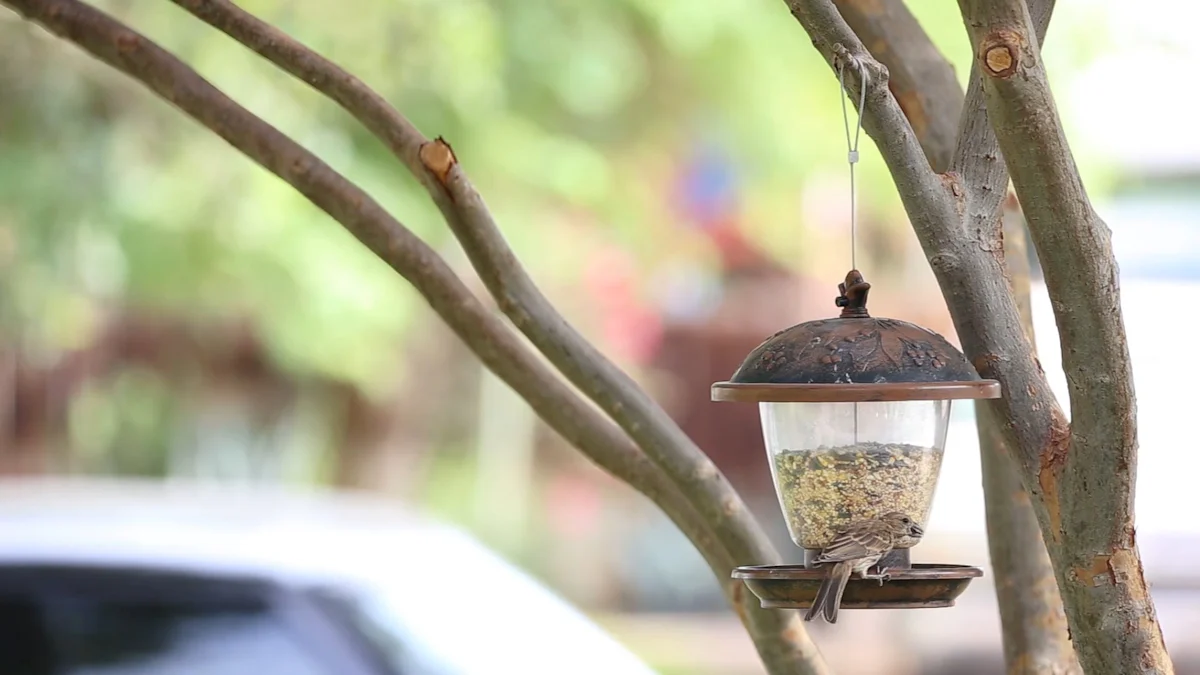
How to Serve Mealworms
Serving mealworms to your garden birds is simple and rewarding. You can offer them live, dried, or even soaked, depending on what works best for your feathered visitors. Live mealworms are especially appealing because they mimic the natural movement of insects, which birds find irresistible. Dried mealworms, on the other hand, are convenient and have a longer shelf life. If you choose dried mealworms, consider soaking them in water for a few minutes before serving. This adds moisture, making them easier for birds to eat and digest. Always start with small portions to gauge how much your garden birds consume, then adjust accordingly.
Where to Place Mealworms
The placement of mealworms plays a big role in attracting birds. Use a shallow dish or a specialized bird feeder designed for mealworms. Place the feeder in a visible yet safe spot, away from predators like cats. Birds feel more comfortable feeding in areas with some cover, such as near shrubs or trees. If you’re just starting, try placing mealworms in multiple locations to see where birds gather most often. Once you identify their favorite spot, keep it consistent to encourage regular visits. Clean the feeding area regularly to maintain hygiene and prevent the spread of diseases.
Incorporating Mealworms into a Balanced Diet
Mealworms are nutritious, but variety is key to a balanced diet for garden birds. Combine mealworms with other food sources like seeds, nuts, and fruits to provide a well-rounded menu. This ensures birds get all the nutrients they need to stay healthy. You can also mix mealworms with suet during colder months for an extra energy boost. Avoid overfeeding mealworms, as too much of a good thing can lead to an imbalanced diet. By offering mealworms alongside other foods, you create a diverse feeding station that supports the health of your garden birds year-round.
Advantages of Soaking Mealworm For Garden Bird
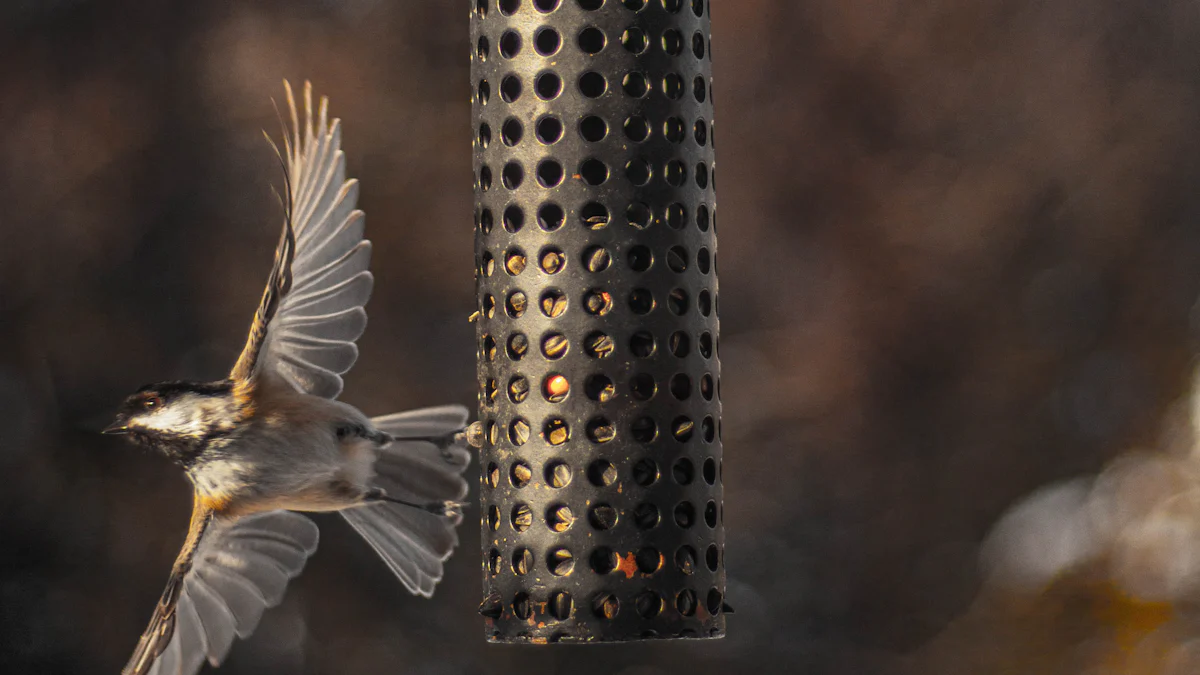
Improved Hydration
Soaking mealworms before feeding them to garden birds can provide an extra source of hydration. Birds often struggle to find water, especially during hot summers or freezing winters when natural water sources dry up or freeze over. By soaking mealworms, you add moisture to their diet, helping them stay hydrated. This is particularly beneficial for smaller birds that may not travel far to find water. You can make a big difference in their daily hydration needs by offering soaked mealworms alongside fresh water in your garden.
Easier Consumption
Soaked mealworms are softer and easier for birds to eat. This is especially helpful for young birds or species with smaller beaks. Dry mealworms can sometimes be tough to chew, but soaking them makes them more palatable and digestible. Birds will find it easier to pick up and swallow soaked mealworms, reducing the effort they need to feed. If you notice birds struggling with dry mealworms, soaking them can make a noticeable improvement. It’s a simple step that ensures all your feathered visitors can enjoy this nutritious treat without difficulty.
Feeding mealworms to garden birds is a rewarding way to support their health and bring vibrant life to your backyard. You’ll notice how these nutritious treats attract a variety of bird species, creating a lively and colorful environment. By following simple tips, like soaking mealworms when needed, you ensure your feathered friends stay hydrated and well-fed throughout the year. Start adding mealworm for garden bird to your feeding routine today. It’s an easy step that makes a big difference in their well-being and keeps your garden buzzing with activity.
FAQ
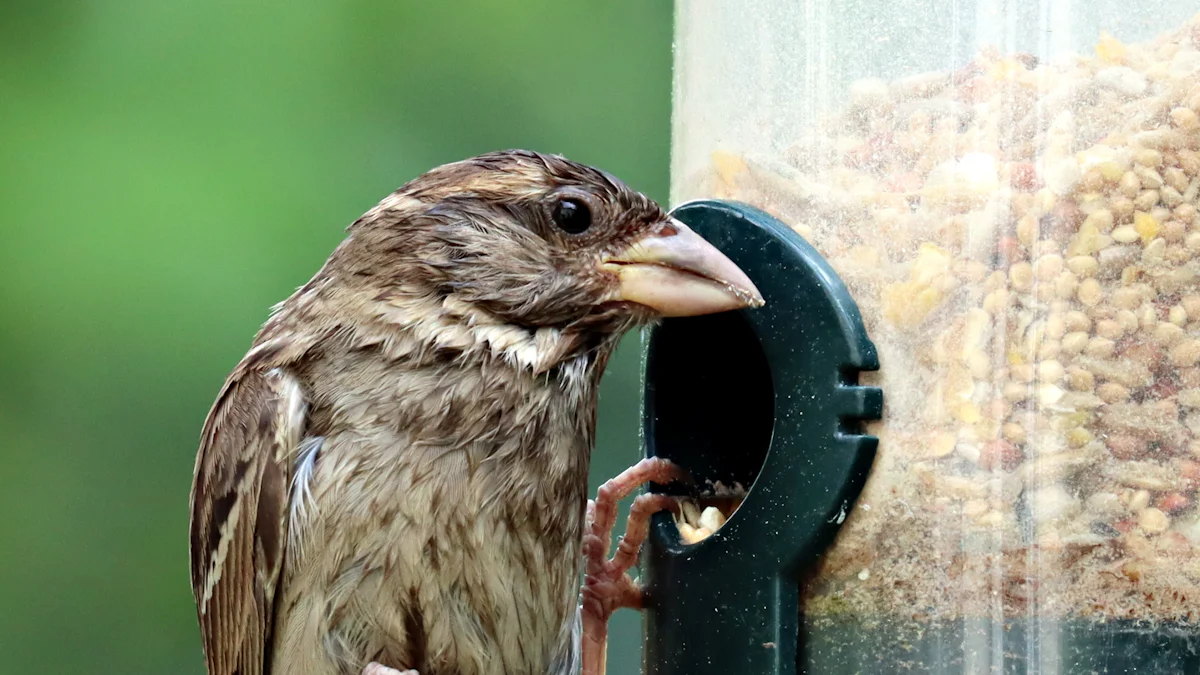
What are mealworms, and why are they good for garden birds?
Mealworms are the larvae of darkling beetles. They are packed with protein, fats, and essential nutrients, making them an excellent food source for garden birds. These nutrients help birds stay healthy, build strong feathers, and maintain energy for daily activities like flying and nesting.
Should I feed live or dried mealworms to birds?
Both live and dried mealworms work well for feeding garden birds. Live mealworms are more appealing because they mimic the natural movement of insects. Dried mealworms are convenient and have a longer shelf life. If you choose dried ones, soaking them in water can make them softer and easier for birds to eat.
How often should I feed mealworms to garden birds?
You can feed mealworms to garden birds daily, but moderation is key. Mealworms are a treat, not a complete diet. Combine them with other foods like seeds, nuts, and fruits to create a balanced feeding routine. Adjust the quantity based on how much your birds consume.
Can mealworms attract specific bird species?
Yes, mealworms can attract a variety of bird species, including robins, bluebirds, wrens, and chickadees. Birds that naturally eat insects will find mealworms irresistible. Offering mealworms can increase the diversity of birds visiting your garden.
Where should I place mealworms to attract birds?
Place mealworms in a shallow dish or a bird feeder designed for mealworms. Position the feeder in a safe, visible spot near shrubs or trees. Birds feel more secure feeding in areas with some cover. Avoid placing the feeder near potential predators like cats.
Are soaked mealworms better than dry ones?
Soaked mealworms provide extra hydration, which is especially helpful during hot summers or freezing winters. They are also softer, making them easier for birds to eat. Soaking dried mealworms for a few minutes before serving can make them more appealing and digestible.
Can I feed mealworms to baby birds?
Yes, mealworms are suitable for baby birds. They are rich in protein, which supports growth and development. Soaked mealworms are ideal for young birds because they are softer and easier to consume. Always ensure the mealworms are fresh and clean.
Do mealworms spoil if left outside?
Mealworms, especially live ones, can spoil if left outside for too long. Dried mealworms last longer but can still attract moisture or pests. Offer small portions that birds can finish quickly. Clean the feeding area regularly to maintain hygiene.
Are mealworms safe for all bird species?
Mealworms are safe for most insect-eating bird species. However, they should be part of a varied diet. Overfeeding mealworms can lead to an imbalanced diet. Always provide a mix of food options to ensure all birds get the nutrients they need.
Can I raise my own mealworms for garden birds?
Yes, raising mealworms at home is possible and cost-effective. You’ll need a container, bedding like wheat bran or oats, and a consistent temperature. With proper care, you can maintain a steady supply of mealworms for your garden birds.


